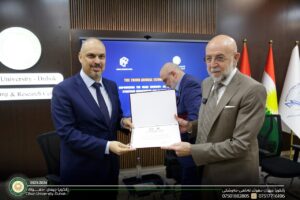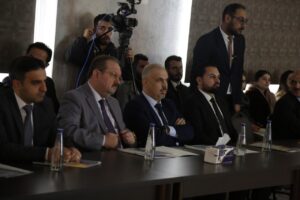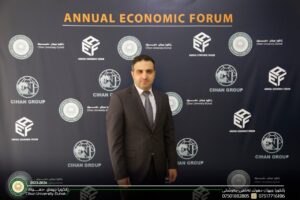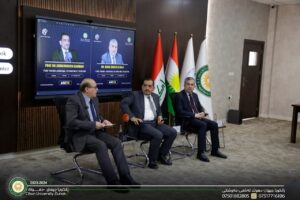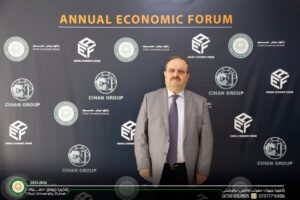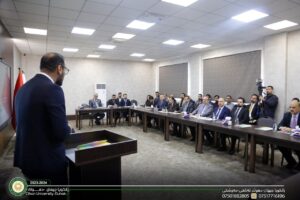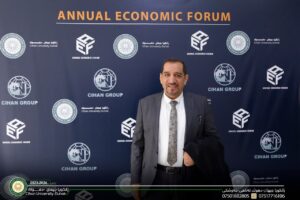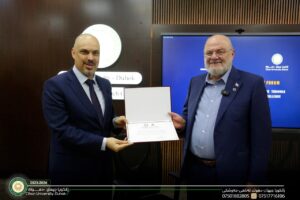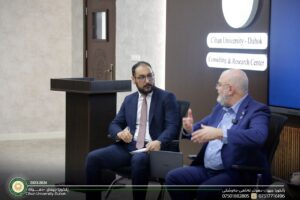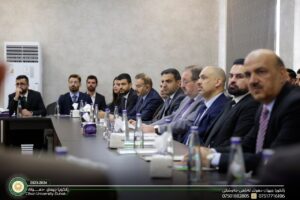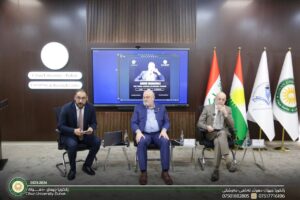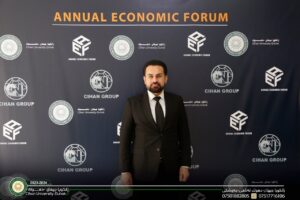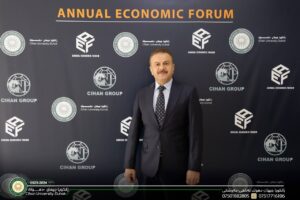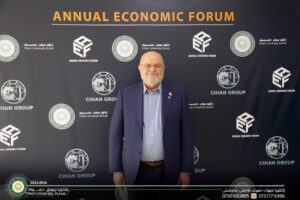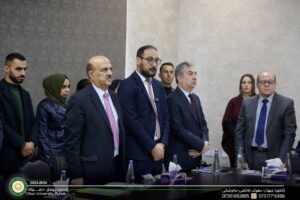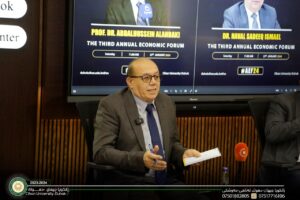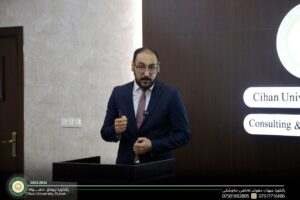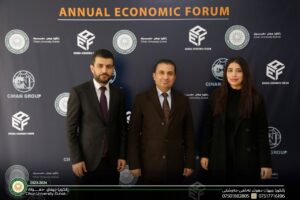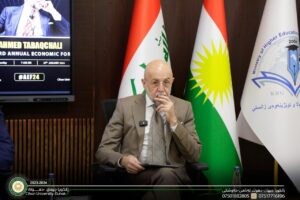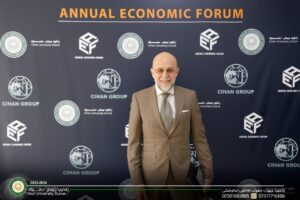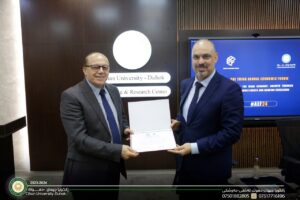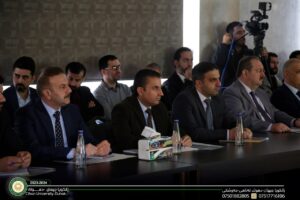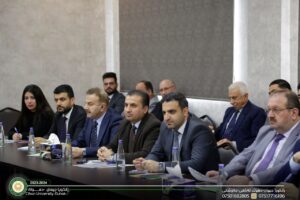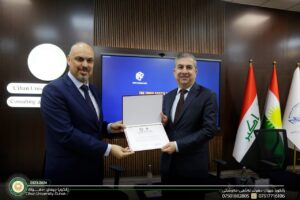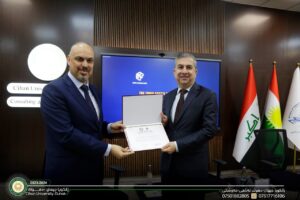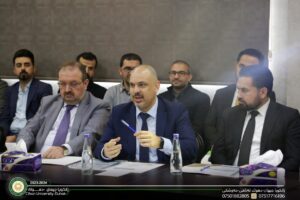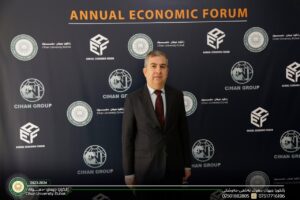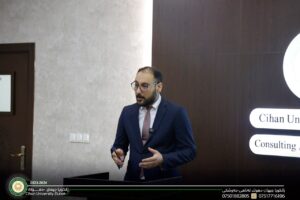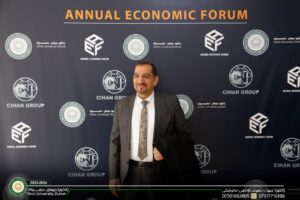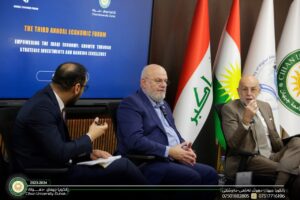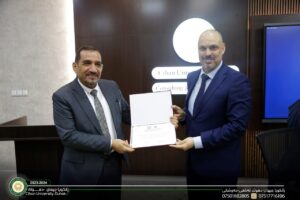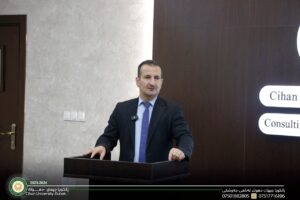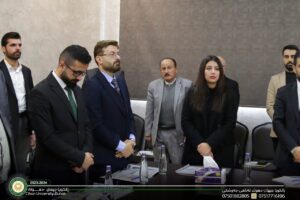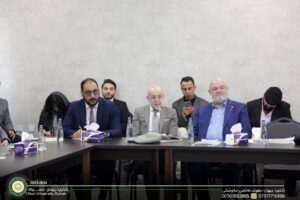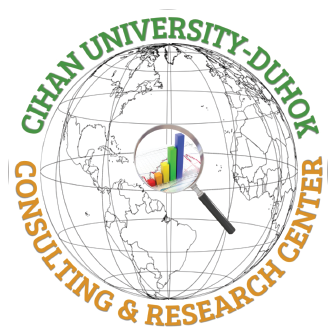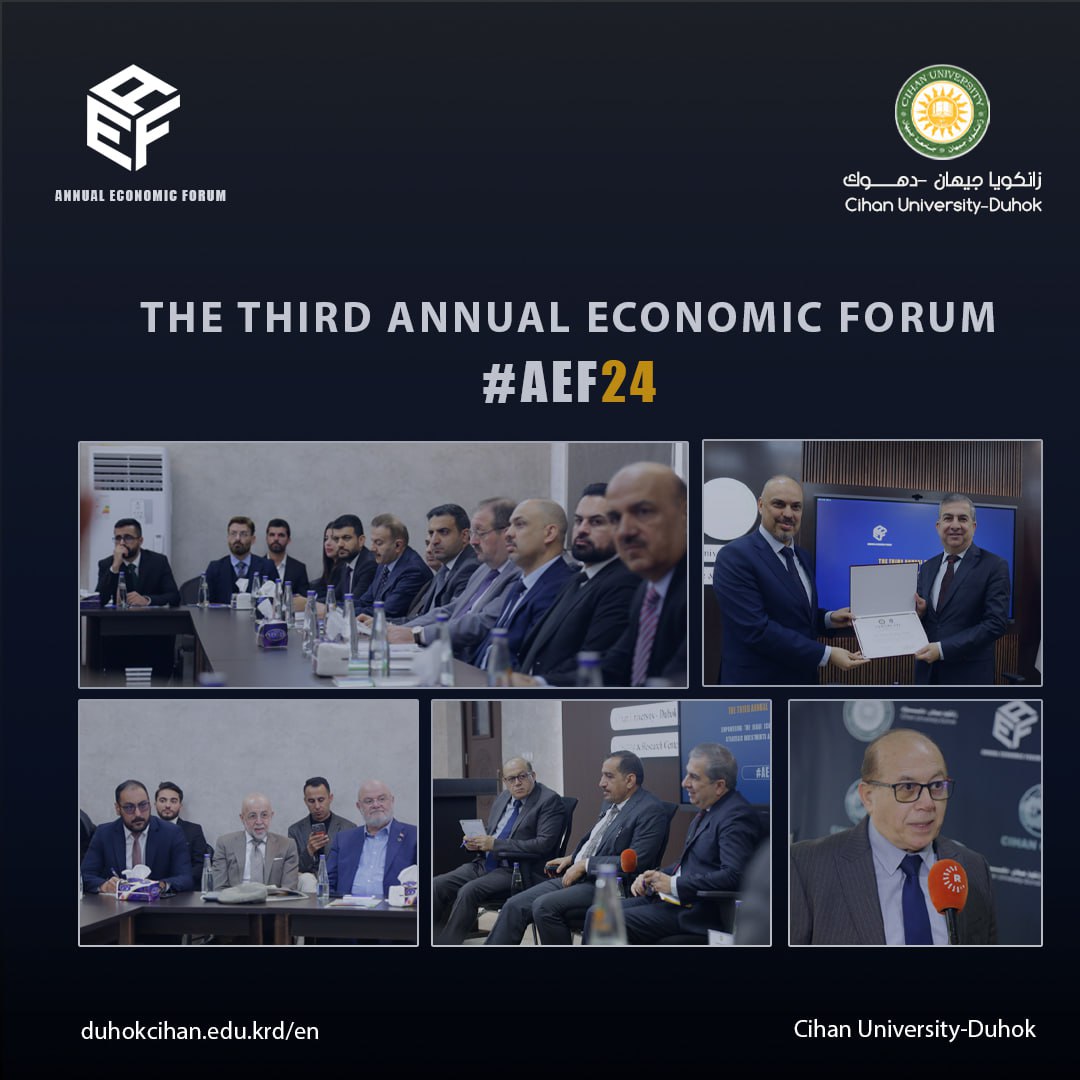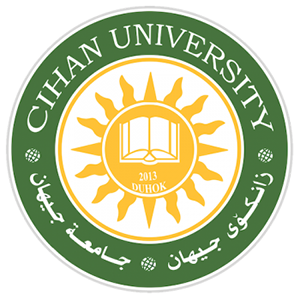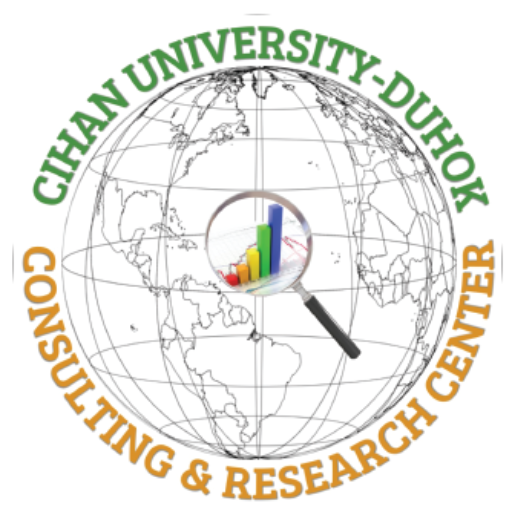The Consulting & Research Centre at Cihan University – Duhok successfully hosted the “Third Annual Economic Forum” on Saturday, January 27, 2024. The event, held at the CRC Hall, aimed to explore strategies for empowering the Iraqi economy through strategic investments and banking excellence under the theme “Empowering the Iraqi Economy: Growth Through Strategic Investments and Banking Excellence” (#AEF24).
First Session (11:00 – 13:00):
– Moderator: Prof. Dr. Ahmed Al-Saffar.
– Keynote Speakers:
– Prof. Dr. Abdalhussein Alanbaki (Head of the Economic Advisory Office of the Iraqi Prime Minister): Discussed overcoming development obstacles in Iraq.
Dr. Al-Anbaki discussed the challenges hindering development in Iraq, emphasizing the need to address structural imbalances in the economy. Article (25) aimed to reform the Iraqi economy by ensuring resource utilization, diversifying sources, and supporting the private sector, but these goals remain unfulfilled.
The Reconstruction Council, established in 1950, initially prioritized strategic projects using 100% of oil revenues. However, subsequent changes reduced its allocation to 70%, leading to a decline in its effectiveness. The Baath regime further diminished the Council’s role until it was absorbed into the general budget.
Concerning oil revenues, Dr. Al-Anbaki proposed a People’s Development Fund managed independently to finance government and private projects with soft loans. This fund would be accountable to both the people and the government.
In conclusion, Dr. Al-Anbaki recommended administrative reform preceding economic reform. He suggested revisiting the management of oil revenues, reconsidering the exchange rate of the Iraqi dinar, adjusting customs tariff schedules, eliminating the currency auction, adopting program and performance budgets, and expediting the legislation of the PPP Partnership Law in Parliament. Despite some progress, challenges and limitations persist in achieving these reforms.
– Dr. Haval Sadeeq Ismael (Representative of the Minister of Investment in the Kurdistan Region): Explored the reality of investment in the Kurdistan Region.
Dr. Haval, acting as the representative of the Minister of Investment in the Kurdistan Region, delivered a comprehensive presentation on the current state of investment within the region. The exploration aimed to offer a nuanced understanding of the realities, challenges, and opportunities that characterize the investment landscape.
Dr. Haval began by providing a detailed analysis of the existing investment projects in the Kurdistan Region. He delved into the specifics of the industries that have been successful in attracting investment. This included a breakdown of sectors such as infrastructure, energy, technology, and other key areas experiencing significant economic activity.
The presentation outlined the challenges faced by investors operating in the Kurdistan Region. Dr. Haval shed light on the regulatory obstacles, bureaucratic processes, and economic uncertainties that may impede the smooth execution of investment initiatives. This section served to provide a realistic appraisal of the difficulties investors might encounter in the region.
Dr. Haval also highlighted potential opportunities for investors in the Kurdistan Region. This involved identifying emerging sectors, untapped markets, and strategic initiatives undertaken by the local government to encourage and support investment. The focus was on presenting the positive aspects that could attract both domestic and foreign investors.
The presentation detailed government policies and initiatives designed to create a conducive environment for investment. Dr. Haval elucidated specific measures taken by the Kurdistan Regional Government to promote economic growth and attract investors. This included regulatory reforms, incentives for investors, and other strategic measures aimed at facilitating a thriving investment environment.
In conclusion, Dr. Haval Sadeeq presentation offered a comprehensive and insightful exploration of the investment landscape in the Kurdistan Region. By addressing challenges, identifying opportunities, and outlining government initiatives, the presentation provided valuable information for stakeholders, investors, and policymakers involved in shaping the region’s economic future.
Second Session (01:00 – 03:00):
– Moderator: Asst. Prof. Dr. Nawar Al-Saadi.
– Keynote Speakers:
– Mr. Mohammed Al Najjar (Investment advisor to the Iraqi Prime Minister): Shared insights on the Iraq Fund as a pivot for economic change and diversification.
Mr. Mohammed Al Najjar, recently shed light on the Iraq Fund for Development during an insightful discussion. The fund, established as an independent institution affiliated with the Prime Minister, aims to play a pivotal role in driving economic change and diversification in the country.
The Iraq Fund for Development is a recently established entity designed to attract investors to actively participate in the development, construction, and implementation of various projects. As an independent institution aligned with the Prime Minister’s office, the fund seeks to create opportunities for economic growth by engaging both local and international investors.
Mr. Al Najjar outlined a strategic approach adopted by the Iraq Development Fund to attract investors. The process involves a phased approach, starting with the local investor, followed by the Gulf investor, and finally targeting the foreign investor.
The initial focus is on engaging local investors. By involving domestic stakeholders, the Iraq Fund aims to foster a sense of ownership among its citizens in the developmental projects. One notable example discussed by Mr. Al Najjar is the ongoing project to build 1,950 schools across Iraq. These projects are handed over to private sector investors, with a unique guarantee – the return of capital after five years. This approach not only encourages local investment but also ensures the active involvement of the private sector in Iraq’s reconstruction process.
In conclusion, Mr. Al Najjar’s insights reveal a comprehensive strategy employed by the Iraq Fund for Development to catalyze economic change and diversification. Through a systematic approach to investor engagement, the fund is creating a pathway for both domestic and international investors to contribute to the reconstruction and development of Iraq, thereby fostering economic growth and stability in the region.
– Mr. Ahmed Tabaqchali (Chief Strategist of the AFC Iraq Fund): Discussed strategies for attracting investments into the Iraq Stock Exchange.
Mr. Ahmed talked about the following:
In 2023, the AFC Fund, was up 110.4% for the year, making it the best-performing long-only, actively managed, generalist, and unleveraged equity fund in the world –according to AFC research.
There were two drivers for such a performance:
The first was the significant fundamental development brought about by the Central Bank of Iraq’s new procedural requirements for its provisioning of U.S. dollars for cross-border transfers in mid-November 2022. A development that is accelerating the adoption of banking and bringing about a transformation of the sector and its role in the economy, and, in the process, boosting the fund’s long-term strategy for the sector. The thrust of which, is that increased adoption of banking would come with growth in bank lending, resulting in an expansion in the money circulating in the economy and, consequently, an increase in non-oil GDP.
The second driver was the cumulative positive effects of the relative stability that the country has enjoyed over the past few years, creating a more stable and predictable macroeconomic framework for businesses and individuals to operate in and plan for capital investments on a scale not seen in the preceding decades of conflict.
The Iraq Stock Exchange (ISX) can support the development of an efficient economy as a vehicle for providing capital for companies to grow. Iraq had an opportunity in 2012 to develop the ISX with the planned initial public offerings (IPOs) of the three mobile operators, which offered the opportunity to bring the ISX to the attention of major international emerging and frontier market investors. Underpinning the IPOs were aspirations for the country to benefit in the same way as other emerging and frontier markets had done when they had begun to attract foreign capital in the past.
During the session, participants engaged in numerous interactive inquiries, discussions, and contributions. Ultimately, the forum generated a series of proposals and recommendations, which will be presented to the appropriate authorities.
